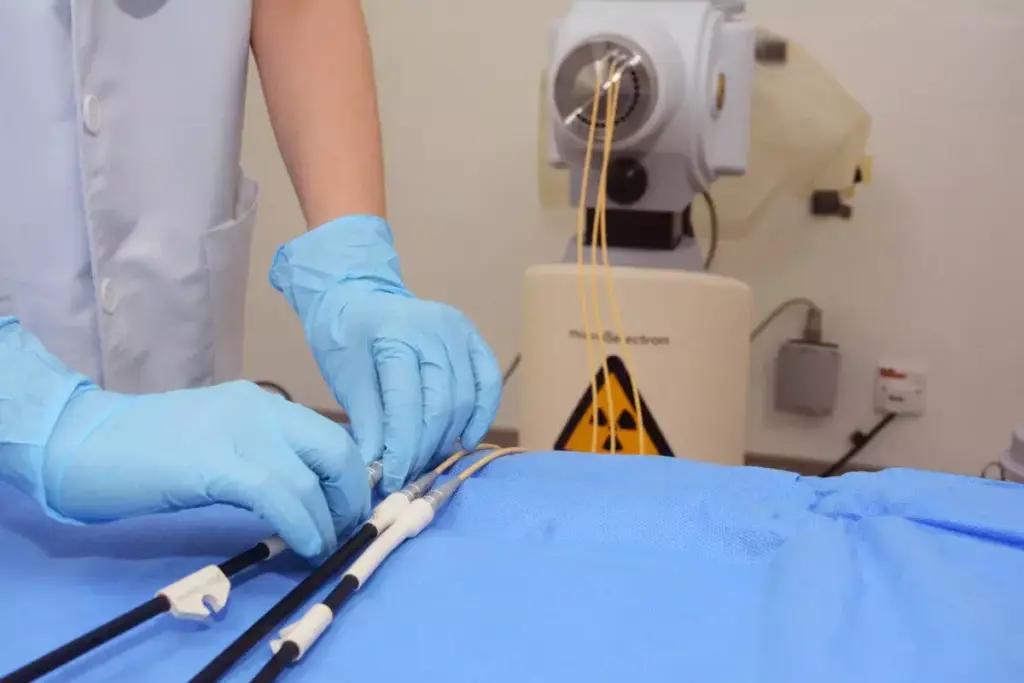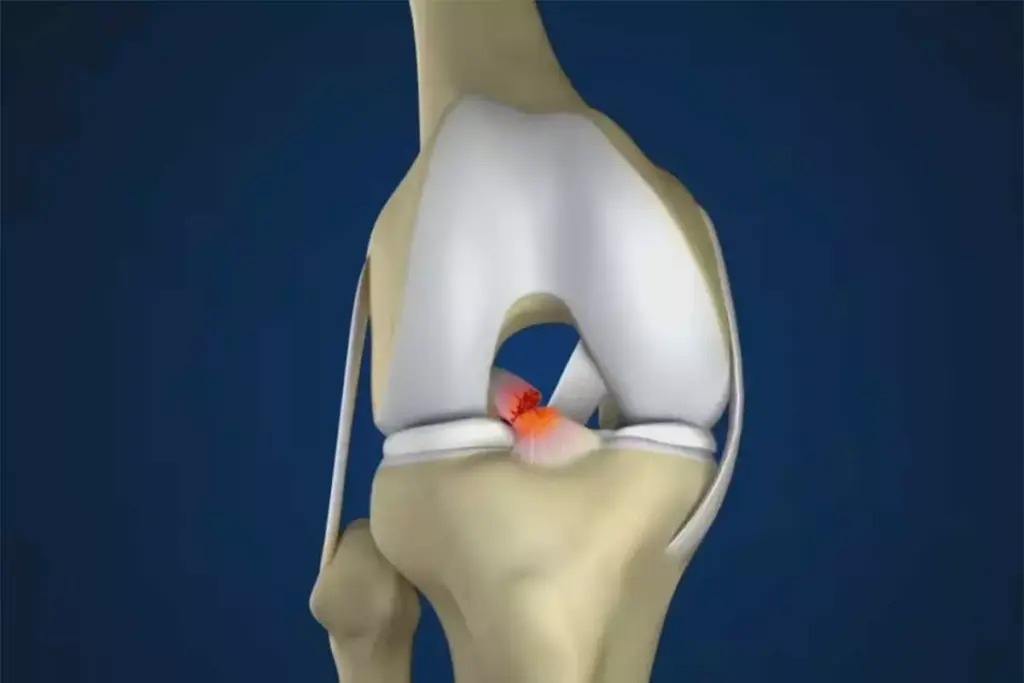Statistics highlight that diet plays a crucial role in cancer prevention. Certain anti-cancer foods can lower cancer risk.
Studies say eating certain foods can fight cancer cells. Foods like broccoli, berries, and fatty fish are good. They’re full of omega-3 fatty acids.
It’s important to know how diet affects cancer prevention. By choosing the right foods, we can lower our cancer risk.
Key Takeaways
- Eating cruciferous vegetables can help fight cancer cells.
- Antioxidant-rich foods like berries have anti-cancer effects.
- Fatty fish with omega-3 fatty acids help prevent cancer.
- Eating whole foods can lower cancer risk.
- Making smart food choices is key to preventing cancer.
Understanding How Food Affects Cancer Cells

It’s key to know how food impacts cancer cells to fight cancer with diet. The link between diet and cancer is complex. It involves many nutrients and compounds that can either help or hinder cancer cell growth.
Diet and Cancer: The Connection
Studies show diet is a big factor in cancer development and prevention. Some foods have compounds that can kill cancer cells or stop them from growing. For example, antioxidants in foods can fight off free radicals. These harmful molecules can damage cells and lead to cancer.
Nutrients in our food greatly affect cancer cell behavior. Omega-3 fatty acids in fatty fish have anti-cancer effects. Also, certain vitamins and minerals boost our body’s defenses against cancer.
Foods That Combat Cancer
Some foods are great for fighting cancer. Cruciferous veggies like broccoli and cauliflower have sulforaphane, which fights cancer. Berries, like blueberries and raspberries, are also good because they’re full of antioxidants.
Knowing how diet affects cancer cells helps us make better food choices. By eating foods that fight cancer and avoiding those that might promote it, we can protect our health. This way, we can take charge of our health and lower our cancer risk.
The Science Behind Cancer Fighting Foods
Cancer fighting foods have special compounds that help protect us. These compounds work with our cells to lower cancer risk.
Key Bioactive Compounds in these foods include antioxidants and phytochemicals. They help protect cells, stop tumors, and keep us healthy. For example, foods with vitamin C and vitamin E can fight cancer.
“The evidence is mounting that certain foods can play a significant role in cancer prevention, thanks to their rich nutritional content.”
Looking at the nutritional profiles of these foods shows a pattern. They all have compounds that help fight cancer. Here’s a table comparing these foods:
| Food | Key Compound | Potential Anti-Cancer Effect |
| Turmeric | Curcumin | Anti-inflammatory, antioxidant |
| Green Tea | Catechins | Antioxidant, anti-proliferative |
| Cruciferous Vegetables | Glucosinolates | Detoxification, anti-proliferative |
Eating these foods can help prevent cancer. But, it’s just one part of staying healthy. A healthy lifestyle and regular check-ups are also key.
Choosing the right foods is a smart way to support our health. It can help lower cancer risk.
What Foods Do Cancer Cells Hate? Powerful Cancer Fighting Foods
A staggering number of people are affected by cancer worldwide. It’s a major concern for global health. But, research shows that some foods can help prevent and fight this disease.
Did you know some foods can lower your risk of certain cancers? Foods packed with antioxidants, fiber, and nutrients can fight cancer. For example, cruciferous vegetables like broccoli, berries, and fatty fish are great for fighting cancer cells.
It’s important to understand how diet affects cancer risk. By choosing what we eat wisely, we can lower our cancer risk. This article will show you the best foods to fight cancer, helping you make better food choices.
Key Takeaways
- Incorporating cruciferous vegetables into your diet can help combat cancer cells.
- Berries are rich in antioxidants that have anti-cancer properties.
- Fatty fish are among the top foods that can help reduce cancer risk.
- A diet rich in fiber and essential nutrients can help prevent cancer.
- Making informed dietary choices is key to reducing cancer risk.
Understanding How Food Affects Cancer Cells
Diet is key in fighting cancer, with some foods killing cancer cells or stopping them from growing. The link between diet and cancer is complex. It involves many nutrients and compounds that can either help or hinder tumor growth.
Eating lots of fruits, vegetables, and whole grains can lower cancer risk. These foods are packed with antioxidants, fiber, and other nutrients that fight cancer. For example, antioxidants protect cells from damage by free radicals, which can lead to cancer.
Some foods are known to fight cancer because of their nutrients. For example, cruciferous vegetables like broccoli and cauliflower have sulforaphane, which fights cancer. Also, berries are full of antioxidants and may lower cancer risk.
How food affects cancer cells is complex. Some foods stop cancer cells from growing, while others make them die. Knowing how this works is key to fighting cancer with food.
| Food Group | Nutrients | Anti-Cancer Effects |
| Fruits and Vegetables | Antioxidants, Fiber | Reduce cancer risk, Protect against cell damage |
| Whole Grains | Fiber, Vitamins, Minerals | Reduce cancer risk, Support overall health |
| Lean Proteins | Protein, Vitamins, Minerals | Support overall health, May reduce cancer risk |
In conclusion, diet’s role in fighting cancer is a big area of study. Evidence shows that some foods are key in preventing and treating cancer. By knowing how nutrients affect cancer cells, we can make better food choices for our health.
The Science Behind Cancer Fighting Foods
Scientists have made big strides in finding out how certain foods can help prevent cancer. They’ve found cancer fighting foods that have compounds that fight cancer cells.
They’ve been studying how some foods can stop cancer from growing. For example, foods full of antioxidants can protect cells from damage. This damage is caused by free radicals, which can lead to cancer.
- Inhibit the growth of cancer cells
- Induce apoptosis (cell death) in cancer cells
- Prevent the formation of new blood vessels that tumors need to grow
Some anti-carcinogenic foods include broccoli and cauliflower. They have sulforaphane. Berries, like blueberries and raspberries, are also good because they have antioxidants.
Learning how these foods work can help us eat better to prevent cancer. Eating these foods can lower the chance of getting some cancers.
More research is needed to understand how diet and cancer interact. But, it’s clear that eating a variety of whole foods is key.
Cruciferous Vegetables: Cancer’s Natural Enemy
Cruciferous vegetables are more than just greens. They are full of sulforaphane and other compounds that fight cancer cells. Broccoli, cauliflower, kale, and cabbage are some examples. These veggies have compounds that may lower cancer risk and stop tumors from growing.
The cancer-fighting power of these veggies comes from glucosinolates. These are turned into sulforaphane when we digest them. Sulforaphane can stop cancer cells from growing and make them die.
Recommended Intake and Preparation Methods
To get the most health benefits from cruciferous veggies, eat them often and prepare them right. Here are some tips:
- Consume a variety: Mix different cruciferous veggies in your diet for more nutrients.
- Raw or lightly cooked: Eating them raw or lightly steamed keeps more sulforaphane. Too much heat can destroy some good stuff.
- Daily intake: Try to eat these veggies a few times a week, or every day, for their health benefits.
Adding more cruciferous veggies to your diet is easy. You can toss them in salads, blend them into smoothies, or sauté them as a side. Making them a regular part of your meals can help lower your cancer risk and boost your health.
Berries and Fruits That Combat Cancer Cells
Eating berries and fruits can lower your cancer risk. They are full of nutrients. Berries, in particular, have anthocyanins. These have antioxidant properties that may help fight cancer.
Berries like blueberries, strawberries, and raspberries are tasty and full of antioxidants. They also have other nutrients that fight cancer cells well. Adding different berries to your meals can boost your health.
Optimal Consumption for Maximum Benefits
To get the most health benefits from berries and fruits, eat them as part of a balanced diet. Here are some tips:
- Eat a variety: Eating different berries and fruits gives you a wide range of nutrients.
- Fresh or frozen: Both fresh and frozen berries keep their nutrients, making them easy to use all year.
- Incorporate into daily meals: Mix berries into your cereal, blend them into smoothies, or snack on them.
Key nutrients in berries and fruits that help fight cancer include:
- Anthocyanins: Found in berries like blueberries and raspberries, these are powerful antioxidants.
- Vitamin C: In citrus fruits and strawberries, vitamin C protects cells from damage.
- Fiber: Fruits like apples and bananas have fiber. Fiber helps with digestion and can lower cancer risk.
Eating a variety of berries and fruits can help fight cancer. It also boosts your overall health and well-being.
Powerful Cancer Fighting Foods You Should Eat Daily
Eating the right foods daily is key to fighting cancer. Certain foods boost your immune system. They help your body fight off cancer cells.
Garlic and Onions: Allium Vegetables
Garlic and onions belong to the Allium family. They are packed with anti-cancer compounds. Garlic has allicin, which kills cancer cells. Onions are full of antioxidants and can lower cancer risk.
You can add garlic and onions to your meals in many ways. Raw or cooked, they add flavor and health benefits.
Turmeric and Ginger: Potent Anti-Cancer Spices
Turmeric and ginger have been used for centuries for their health benefits. Turmeric has curcumin, which fights inflammation and cancer. Ginger reduces nausea and has anti-inflammatory effects.
Use turmeric and ginger in your meals or as teas. They can spice up soups and curries.
Green Tea and Its Cancer-Protective Effects
Green tea is full of antioxidants called catechins. These protect against cancer. Drinking green tea regularly can lower cancer risk.
Drink 2-3 cups of green tea daily for its benefits. You can also use green tea extract, but talk to a doctor first.
| Food | Active Compound | Cancer-Fighting Benefit |
| Garlic | Allicin | Kills cancer cells |
| Turmeric | Curcumin | Anti-inflammatory and anti-cancer effects |
| Green Tea | Catechins | Cancer-protective effects |
Omega-3 Rich Foods That Suppress Cancer Growth
Omega-3 fatty acids are found in many foods and help fight cancer. They are known for their anti-inflammatory effects and support health.
Fatty Fish: Salmon, Mackerel, and Sardines
Fatty fish like salmon, mackerel, and sardines are full of omega-3s. They contain EPA and DHA, which are good for health.
Eating these fish often can lower cancer risk. For example, eating salmon may help prevent colon cancer.
| Fatty Fish | Omega-3 Content | Potential Cancer Benefit |
| Salmon | High in EPA and DHA | Reduced colon cancer risk |
| Mackerel | Rich in EPA and DHA | May reduce prostate cancer risk |
| Sardines | High in EPA and DHA | Potential reduction in breast cancer risk |
Plant-Based Omega-3 Sources
Plant-based diets can also get omega-3s. Flaxseeds and chia seeds are good sources of ALA.
ALA is not as easily used by the body as EPA and DHA. But it’s good for health and can be converted into more useful forms, though not much.
“The inclusion of plant-based omega-3 sources in the diet can contribute to overall health and potentially reduce the risk of certain diseases.”
How Omega-3s Help Fight Cancer
Omega-3s fight cancer in several ways. They reduce inflammation, which is bad for cancer. They also change cell membranes, which can stop cancer cells from growing.
Studies show omega-3s can also lessen chemotherapy side effects. This improves life quality for cancer patients.
In summary, eating foods rich in omega-3s is good for preventing cancer and keeping healthy.
Nuts, Seeds, and Legumes With Anti-Cancer Properties
nuts and seeds for cancer prevention
Nuts, seeds, and legumes are not just good for you; they also fight cancer. They are packed with nutrients and compounds that help prevent cancer.
Walnuts, Flaxseeds, and Chia Seeds
Walnuts, flaxseeds, and chia seeds are great for fighting cancer. Walnuts have omega-3 fatty acids and antioxidants. These help reduce inflammation and stress, which can lead to cancer.
Flaxseeds and chia seeds are full of fiber and alpha-linolenic acid (ALA). The fiber helps your digestion, and ALA fights inflammation, which can stop cancer cells.
Beans and Lentils: Fiber-Rich Cancer Fighters
Beans and lentils are legumes that are full of fiber, protein, and phytochemicals. Their fiber helps control blood sugar and keeps your gut healthy, both key to preventing cancer.
They also have folate and B vitamins. These are important for fixing DNA, which can lower cancer risk.
Portion Recommendations and Daily Intake
Adding nuts, seeds, and legumes to your diet is easy and good for you. Here’s how:
- Eat a handful (about 1 ounce) of nuts and seeds every day.
- Have beans and lentils in your meals a few times a week.
- Try different types to get the most nutritional benefits.
| Food | Serving Size | Nutritional Benefits |
| Walnuts | 1 ounce (28g) | Rich in omega-3 fatty acids and antioxidants |
| Flaxseeds | 1 tablespoon (10g) | High in fiber and alpha-linolenic acid (ALA) |
| Chia Seeds | 1 ounce (28g) | Rich in fiber, protein, and various minerals |
| Lentils | 1 cup cooked (180g) | High in fiber, protein, and folate |
By adding these foods to your diet, you can lower your cancer risk and improve your health.
Foods That Starve Cancer Cells
Some foods can starve cancer cells by cutting off their blood supply or changing how they use energy. This way of fighting cancer focuses on what we eat. It can really affect how cancer cells grow and spread.
Anti-Angiogenic Foods That Cut Off Blood Supply to Tumors
Anti-angiogenic foods stop new blood vessels from forming. This is key for tumors to grow. These foods starve cancer cells by cutting off their blood supply. Here are some examples:
- Green tea: It’s full of catechins, which stop new blood vessels from forming.
- Turmeric: Curcumin in turmeric helps stop new blood vessels from forming.
- Berries: Berries are full of antioxidants and can stop new blood vessels from forming.
Foods That Disrupt Cancer Cell Metabolism
Some foods mess with how cancer cells use energy. This makes it hard for them to grow and survive. Here are some examples:
- Leafy greens: They’re full of antioxidants and nutrients that mess with cancer cell energy use.
- Cruciferous vegetables: Broccoli and cauliflower have compounds that affect how cancer cells use energy.
- Fatty fish: Omega-3 fatty acids in fatty fish can reduce inflammation and mess with cancer cell energy use.
Integrating These Foods Into Your Diet
To starve cancer cells, add these foods to your daily meals. Here’s how:
- Begin your day with green tea or a berry-rich breakfast.
- Add turmeric and spices to your meals.
- Make sure to eat a variety of colorful vegetables.
- Eat fatty fish at least twice a week.
By changing your diet, you can lower your cancer risk and improve your health.
Creating a Cancer-Preventive Eating Plan
To make a good cancer-preventive eating plan, you need to know which foods fight cancer. You also need to know how to add these foods to your meals. A good plan can lower your cancer risk by focusing on foods that are full of nutrients.
Building a Balanced Anti-Cancer Plate
Your anti-cancer plate should have different foods that fight cancer. Include veggies like broccoli and kale, berries, and fruits with lots of antioxidants. Also, add foods rich in omega-3s and legumes.
| Food Group | Examples | Benefits |
| Cruciferous Vegetables | Broccoli, Cauliflower, Kale | Contain sulforaphane, which has been shown to have anti-cancer properties |
| Berries and Fruits | Blueberries, Strawberries, Raspberries | Rich in antioxidants that help protect cells from damage |
| Omega-3 Rich Foods | Salmon, Sardines, Walnuts | Help reduce inflammation, which can contribute to cancer development |
Meal Planning Strategies
Good meal planning is key to eating foods that fight cancer. Start by planning meals around fresh, seasonal produce. This ensures you get a variety of nutrients.
- Plan your meals for the week ahead of time
- Shop for seasonal produce to maximize nutrient intake
- Prepare meals in advance to save time during the week
Sample Weekly Menu
Here’s a sample weekly menu to show how to follow a cancer-preventive eating plan:
| Day | Breakfast | Lunch | Dinner |
| Monday | Oatmeal with berries and walnuts | Grilled salmon salad with mixed greens | Quinoa and vegetable stir-fry with turmeric |
| Tuesday | Greek yogurt with honey and almonds | Lentil soup with whole grain bread | Grilled chicken with roasted broccoli |
By following these tips and eating a variety of cancer-fighting foods, you can lower your cancer risk.
Foods to Avoid That May Promote Cancer Growth
Some foods can help fight cancer, but others might help it grow. Knowing which foods to avoid is key for a diet that fights cancer.
Alcohol and Its Cancer Risk
Drinking alcohol can increase the risk of some cancers. The International Agency for Research on Cancer says alcohol is a carcinogen. This means we should drink in moderation.
“The evidence is clear: alcohol consumption is a risk factor for several types of cancer, including breast, liver, and esophageal cancers.” This shows how important it is to watch our alcohol intake to lower cancer risk.
Staying away from alcohol or drinking less can help. If you do drink, do it in small amounts. The American Cancer Society recommends no more than one drink a day for women and two for men to lower cancer risk.
Other foods and substances can also help cancer grow. Knowing about these and making smart food choices can help prevent cancer.
Conclusion: Empowering Your Health Through Diet
Knowing how diet affects cancer prevention is key to good health choices. The foods we eat can either help or hinder cancer cell growth. Adding cancer-fighting foods to your diet is a smart way to prevent cancer.
Eating foods like cruciferous veggies, berries, and omega-3s can fight cancer cells. Foods that starve cancer cells, like anti-angiogenic foods, also help. These changes can boost your health and lower cancer risk.
It’s important to have a balanced diet with many cancer prevention foods. This means creating a balanced plate, planning meals, and avoiding foods that might help cancer grow. By doing this, you can greatly improve your health and well-being.
FAQ
How can I build a balanced anti-cancer plate?
For a balanced anti-cancer plate, include a variety of colors and food groups. Choose whole foods over supplements and limit processed and unhealthy foods.
Are there any foods that cancer patients should avoid?
Cancer patients should avoid foods high in sugar, salt, and unhealthy fats. They should also limit or avoid alcohol and processed and red meat.
What is a cancer-preventive eating plan?
A cancer-preventive eating plan includes whole foods like fruits, vegetables, whole grains, and lean proteins. It limits processed and unhealthy foods.
Can certain foods starve cancer cells?
Yes, some foods with anti-angiogenic properties can cut off tumor blood supply, starving them of nutrients.
How does omega-3 help fight cancer?
Omega-3 fatty acids have anti-inflammatory effects, which can lower cancer risk. They may also slow cancer cell growth and improve treatment outcomes.
Are there any foods that can cause cancer?
No single food causes cancer, but a diet full of processed meat, sugary drinks, and refined carbs may increase cancer risk.
How can I incorporate cancer-fighting foods into my diet?
Eat a variety of whole foods like fruits, vegetables, whole grains, and lean proteins. Try to have different colors on your plate for more nutrients.
What are some examples of anti-cancer foods?
Anti-cancer foods include broccoli, cauliflower, blueberries, raspberries, salmon, and walnuts.
How do certain foods affect cancer cells?
Some foods can slow cancer cell growth by providing nutrients and compounds. Antioxidants in foods can protect cells. Other compounds can cut off tumor blood supply.
What are cancer-fighting foods?
Cancer-fighting foods are full of nutrients that help prevent or slow cancer cell growth. Examples include broccoli, berries, and foods rich in omega-3.










